- Home
- Raymond Benson
Zero Minus Ten rbb-1 Page 16
Zero Minus Ten rbb-1 Read online
Page 16
Officials began to dismantle the altar as the chant continued: “The city is being dismantled from East to West, from the South gate to Peking city. No firecrackers are fired in celebration, the metropolis is reduced to ashes.”
The ceremony was over. The entire rite had taken a little over two hours. The recruits joined the ranks of the other members as Li Xu Nan, the Cho Kun, the Dragon Head, stood and addressed the society.
“We will gather again in three days to perform the final phase of the initiation ceremony—in which your faces shall be cleansed. We welcome our new brothers to the Dragon Wing. We have one more piece of business to conduct tonight. One of our Blue Lanterns has broken her oaths. We must decide her fate.” He turned to the Vanguard. “Bring out the traitor.”
The Vanguard motioned towards a door. Two officials brought in a girl. She was blindfolded, and her hands were tied behind her back. Bond’s heart jumped into his throat. It was Sunni!
“Our sister here has betrayed the society, not only to a stranger, but to a gweilo. She has sought refuge with the enemy. She has sought to leave the fraternity. What must we do with her?”
The group shouted, “She must die!”
Li stood for a moment in silence. He walked around Sunni, who was now on her knees on the floor. He inspected her as if he was evaluating prized livestock.
“I agree with my younger brothers,” he said, “but we shall wait. The traitor may be useful in an enterprise valuable to the society. For the time being, she will be kept in isolation.” He nodded to the two guards, who pulled Sunni up and led her out of the room. It took every ounce of Bond’s strength not to burst through the dilapidated ceiling and attempt to rescue her.
Li Xu Nan and Scarface stood side by side in front of the Triad and gave the hand signs for their ranks. Scarface said a final prayer and dismissed the group. The meeting was over. The members left silently and, after a few minutes, Li, Scarface, and the official who was the Vanguard were alone. They took off their robes.
Scarface took the metal briefcase from behind the altar. He handed it to the Vanguard, who apparently was the Chan So, or Treasurer, of the organization.
Li said, “This month’s earnings. Make sure it is properly distributed. The families of our brothers who were killed at the girl’s residence must receive special consideration.”
The Vanguard bowed. “Yes, Cho Kun.” He took the case and left. Bond watched as Scarface extinguished the rest of the lighting, and he and Li walked out of the Lodge.
Bond waited a full ten minutes before moving. He had to find Sunni. He crawled forward, so that he was directly above where the altar had been. There was a loose board there through which he could drop. He pulled it up, then jumped down to the floor below. He waited a few seconds to allow his eyes to adjust to the darkness. Then he moved towards the door where they had taken Sunni and stepped through it.
He was met by myriads of swords, all pointing at his chest.
FOURTEEN
BEDTIME STORY
ZERO MINUS SIX: 25 JUNE 1997, 1:00 A.M.
The speed with which Bond was disarmed was startling. He felt as if he was moving in slow-motion and that everything else was happening too fast. The Triads with the choppers marched him to the adjacent building, one that was obviously still in use. One of them unlocked the door and roughly shoved Bond inside. He was led down a hallway to a locked, steel door. Behind it was a dark staircase leading to a basement. Bond was pushed inside, and the door slammed and locked behind him.
Bond crept down the stairs in the dim light to a small, bare room containing a narrow bed and a toilet. It was, to all intents and purposes, a jail cell.
Sunni Pei was sitting on the bed. When she saw him, she jumped up and ran to him. “James! My God, James!” she cried, then fell into his arms and held him tightly.
Bond stroked her hair and embraced her. “It’s all right, Sunni. We’ll get you out of this.”
“They’re going to kill me, James, I know it!” She said this with anger and spite, not with the tears he had expected. “And after all I’ve done for them!”
She released him and led him to the bed.
“I told you before that they’ve merely used you,” he said. “They never made you a full member.”
“The oaths still apply to me, though,” she said. “And I was taking just as much of a risk with regard to the law in Hong Kong.”
She stood up and started pacing the cell. “I can’t tell you how I hate myself, James! I was their goddamned whore! I sold my body to put money in their pockets!”
“Sunni,” he said, “you did it because you believed in them. I understand. You believed they would get you out of Hong Kong. You believed they were your brothers and sisters. You believed they would take care of you.”
She sat down again. “Well, in many ways they did take care of me. I couldn’t have afforded that flat otherwise. They paid for most of it. They gave me a social life, such as it was.”
“Sunni, you know that if you hadn’t received an American education, that if you had grown up entirely as a Hong Kong Chinese, then you would be thinking quite differently. You would have killed me the other day. You would have been loyal to the Triad. Your cultural background would have prevented you from even considering associating with a gweilo. ”
“Oh, I still have a strong Chinese cultural heritage,” she said. “I just happen to speak like an American.” She used an exaggerated accent on the last word, then pouted. “You’re right, though. It’s surprising that they even allowed me into the Triad with my westernized habits.”
“You had other assets that they deemed valuable.”
“And what might those be?”
“You’re beautiful and you’re intelligent.”
She smirked. “Oh, right, I’m the perfect hostess. I can go with Chinese, American, Japanese, German, English … you name it.”
“I didn’t mean it that way,” he said.
The sound of keys in the door interrupted them. It opened and two Triads stepped in. They gestured for Bond to come with them. Sunni stood up, too, but one of the men roughly pushed her back on to the bed.
Bond shoved the thug against the wall. The other man brutally delivered a spear-handed chop between Bond’s shoulder blades, sending him to his knees. The blow had hit the nerve centre below his neck, and for a moment Bond saw nothing but stars. The man shouted at Bond in Chinese, then kicked him. 007 got weakly to his feet and followed the men out of the room.
He was brought upstairs, down a hall, and up another flight of stairs. He was finally able to take in more of his surroundings as he walked. The building was a modern business office. It might have been the corporate headquarters of a small real-estate or insurance company. They passed open offices containing new, expensive-looking black and white leather furniture. In many ways, the place reminded him of the way the new M had refurnished SIS headquarters.
He was finally led into a large, plush office and left alone. It was decorated in the same fashion as the other rooms he had seen, but with a distinctive Chinese flavour. Along with the high-tech, modern furniture, there was a bamboo screen against the wall, brightly painted with a scene of Chinese fishermen snaring a dragon. A small Buddhist altar stood in a corner, with an idol of the god Kwan Ti, or Mo, on it. Bond remembered that not only was Mo the god of policemen, he was also the favoured deity of the underworld. There was nothing else in the room that would suggest that the office belonged to the Dragon Head of a Triad. It was clearly Li Xu Nan’s legitimate office.
Before Bond could sit down, Li entered the room and shut the door behind him. They were alone.
“We meet again, Mr. Bond,” Li said in Cantonese. “I am sorry that it is under unfortunate circumstances.”
“You can’t hold me, Mr. Li,” Bond said. “I’m a British citizen. My newspaper will be trying to find me when they’ve realized I’ve gone missing.” His Cantonese had improved since arriving in Hong Kong.
“Oh, dispens
e with your crap, Mr. Bond,” he said. “You are no journalist. I know who you are.”
“I work for the Daily Gleaner …”
“Please, Mr. Bond! I am no fool!” Li walked to his large oak desk and took a cigarette out of a gun metal case not unlike Bond’s own. He lit it without offering one to his captive. “You are James Bond, an agent with the British Secret Service. It was not difficult to ascertain this. You see, I know Mr. T.Y. Woo and what he does. I have known for years that his shop on Cat Street is a front for your station here in Hong Kong. You were followed from Miss Pei’s flat the other day. When we saw Mr. Woo’s private taxi pick you up, it all fell into place.”
“Then it was you who killed J.J. Woo? It was you who ransacked the place?”
Li shrugged. “We wanted the girl. She is a traitor. We deal with traitors most severely. We only messed up the place to leave a message. The elder Woo attempted to stop us. He was an obstacle that we had to overcome. It was not personal.”
“Where are T.Y. and his son?”
Li said, “I honestly do not know. They were not there when we raided the building.”
“Don’t you see that he knows who you are and what you do? He can have the Hong Kong Police down on you at any minute.”
“He cannot prove a thing. You’re the only one who has witnessed anything,” Li said. “Let me make this perfectly clear, Mr. Bond. You are a gweilo. We don’t like you. You are not welcome here. Our ceremonies are sacred and secret. You have seen something no other gweilo has ever seen. You are a dead man, Mr. Bond. If I had not stopped them, my brothers would have already killed you.”
“Why did you stop them, then?”
Li paused a moment, walked to the drinks cupboard, and removed a couple of glasses. “Drink, Mr. Bond?”
He wanted to refuse, but a drink would actually do him a lot of good. “All right. Bourbon, straight.”
Li filled the glasses and handed one to Bond. “Do you remember the other day when you ‘interviewed’ me? I told you that you were in my debt.”
“I remember.”
“The time has come for you to repay the debt.”
“Why should I?”
“Hear me out, Mr. Bond. You have no other choice.”
Bond settled on the sofa. “All right, Li, I’ll listen.”
“I’ll have to tell you a story,” he said, sitting opposite Bond in a leather armchair. “A little bedtime story. It involves someone else you know … Mr. Guy Thackeray.”
Bond interrupted Li. “Did you kill him?”
Li paused a moment and shook his head. “No. We had nothing to do with that. Let me tell you something: I hated Guy Thackeray. He and I were mortal enemies. But I wanted him alive. I needed him alive. And the story I’m about to tell you will explain why. No, he was killed by General Wong, a lunatic up in Guangzhou. You have heard of him?”
Bond nodded. “Are you sure? Why would he do that?”
Li held out his hands tolerantly. “Patience, Mr. Bond. Hear me out. And then you will understand.”
The Dragon Head paused a moment, then spoke evenly and calmly. “The year was 1836. A twenty-six-year-old man named James Thackeray had sailed from his home in Britain two years earlier to the Pearl River Delta in southern China. He had heard a fortune could be made trading goods to the Chinese, but it was a difficult time and place to make a living. Gweilo were not welcome in southern China. You see, Mr. Bond, China needed nothing from the West, but was quick to perceive that the West needed China’s tea, among other commodities. Therefore, the government grudgingly allowed the “white devils” to trade on the outer fringes of her empire.”
Bond interjected, “It seems to me that each side treated the other as inferior.”
“Yes,” Li said. “Anyway … James Thackeray had originally attempted to trade manufactured goods and had made a meagre living from silver, but it wasn’t enough to feed his wife and young son, neither of whom was allowed into Guangzhou, or Canton, as it was called then. Other British traders were in the same predicament, and it appeared for a while that trade with China would be a failure.
“No one was quite sure when it happened, but eventually some ingenious trader discovered that the English did possess a commodity that the Chinese wanted. It was opium. The merchants had no qualms about peddling opium to wealthy Chinese, and it soon became the most valuable resource in that part of the world at the time. China was quick to ban the substance, but the British managed to find a way to smuggle it in anyway.”
“And the opium trade became big business,” Bond said.
“Correct. In 1836, James Thackeray began trading opium and quickly developed a small clientele which provided him with more money than he had ever dreamed of. Thackeray’s best customer was an extremely wealthy Chinese warlord and government official residing in Guangzhou. His name was Li Wei Tam.” Li paused again, then added, “He was my great-great-grandfather.”
Bond sat up straighter. This story was getting interesting.
“My honourable ancestor was a warlord who was ten years older than Thackeray. He had tremendous influence in Guangzhou and the area around the Pearl River Delta. Although the Ch’ing Dynasty was in power, Li’s loyalties were with the Mings, who had been overthrown in the seventeenth century. Of course, he would never have admitted this publicly. If he had done so, he would have been arrested and most likely put to death. Li Wei Tam was part of a secret society that had pledged to overthrow the Ch’ing Dynasty.
“It was pure luck, really, that James Thackeray had an audience with the warlord and was able to establish a relationship with him. In fact, the two men grew to respect each other. Although they probably wouldn’t have admitted it to other members of their respective races, they became friends. This was due in part, no doubt, to Li Wei Tam’s physical dependence on the drug that James Thackeray so happily supplied.” This last was said with a certain amount of venom.
Li went on: “In 1839, things started to change. The emperor decided to end the opium trade once and for all. The governor of Hunan Province was ordered to confiscate all of Guangzhou’s foreign traders’ opium, thus igniting the First Opium War. For the next three years, James Thackeray found it extremely difficult to get his opium into China and to his favoured customer. Likewise, Li Wei Tam had to go through unpleasant stretches of withdrawal from the drug. Finally, my great-great-grandfather used his influence in his secret society to establish an illegal pipeline from Thackeray to Guangzhou. In one of the first, albeit unethical, cooperative efforts between a British citizen and a Chinese warlord, James Thackeray was allowed to continue his lucrative opium trade and Li Wei Tam was able to perpetuate his comfortable, horizontal life on an opium bed. I suppose you know what happened in 1842?”
Bond answered, “The war had ended, and Hong Kong Island was ceded to the British.”
“Yes. The ban on opium still existed, however. The Chinese government, as a result of what they viewed as an unfair and unequal Treaty, made trade an even more challenging endeavour despite the fact that the Treaty had guaranteed Britain’s right to trade openly and freely.”
Bond added, “In China’s view, the ceding of Hong Kong Island was a humiliating experience and was never wholly forgotten nor forgiven.”
“You are an intelligent man, Mr. Bond,” Li said. “I can almost forget you are a gweilo. Shall I continue?”
“Please do.”
“While companies like Jardine Matheson were allowed to build headquarters on Hong Kong Island, James Thackeray still found himself dealing independently and without any established, legal structure from which to conduct business. He, too, needed a legitimate enterprise that he could call his own. Even though he had made what some men might call a fortune over the last few years, Thackeray needed more capital. It was Li Wei Tam who came to his rescue. One night in 1850, over an exquisite meal, a tremendous amount of rice wine, and quite a bit of opium smoke, a deal was struck that would have repercussions for both men’s descendants. My honourable ances
tor offered to “loan” Thackeray the much-needed capital to start his own trading company. Thackeray, who was basically an honest man, was flabbergasted. He said he would accept the money only on condition that they made a provision by which Li could be repaid.
“My great-great-grandfather was drunk and high from the amount of wine and drugs consumed that night, and thought whimsically about Thackeray’s request. For the sake of xinyong, a term that means ‘trust’ in our language, Li Wei Tam attempted to think of a ridiculous demand, which Thackeray could never fulfil, as a gesture of his own generosity. After all, his primary motivation was the continuing supply of opium. James Thackeray was his friend, and Li Wei Tam hadn’t many friends—Chinese or otherwise.
“The ceding of Hong Kong happened to be a much-discussed and extremely controversial topic in southern China at the time. The Treaty signed at Nanking had provided that Hong Kong be handed over to the British in ‘perpetuity.’ ”
Bond added, “There were even British citizens who thought the Treaty was absurd.”
“Yes. At that time, no one could predict that it would one day be the Manhattan of the Far East. Therefore, with a sly grin, my great-great-grandfather told his friend, “Mr. Thackeray, you may have the money for your company on one condition. You must sign an agreement with me. Should Hong Kong ever come under Chinese rule again, then your assets in the company shall be handed over to me. It would then become my company.”
“Thackeray, who believed that Hong Kong would never leave British rule, laughed and agreed. The two men drew up official legal documents. James Thackeray signed them, and Li Wei Tam applied his chop, our official family seal, alongside the signature. It was maijiang of the highest order. Thus, EurAsia Enterprises was born.”
My God, Bond thought, the roots of this whole mess went back a century and a half!
Li continued. “Opium was legalized in 1856 as the Second Opium War began, and during the following years James Thackeray became one of Hong Kong’s wealthiest men. EurAsia Enterprises flourished, and even London recognized his and the company’s importance. The Kowloon peninsula was ceded to Britain in 1860, and finally, in 1898, the New Territories was leased to Britain for ninety-nine years. Little did anyone know at the time that this last Treaty, signed at the Second Convention of Peking, would have a direct effect on Hong Kong Island and Kowloon as well.”

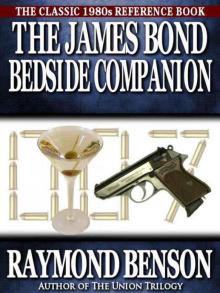 The James Bond Bedside Companion
The James Bond Bedside Companion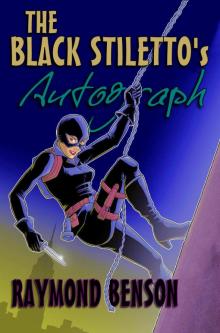 The Black Stiletto's Autograph
The Black Stiletto's Autograph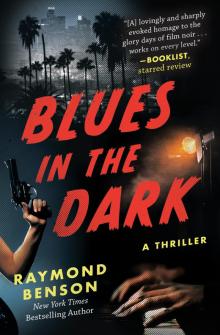 Blues in the Dark
Blues in the Dark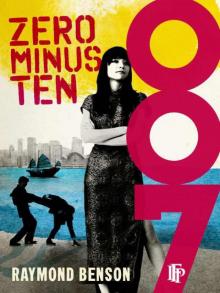 Zero Minus Ten
Zero Minus Ten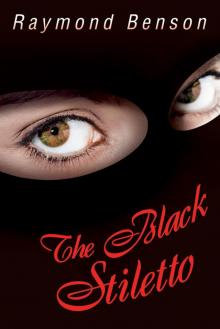 The Black Stiletto
The Black Stiletto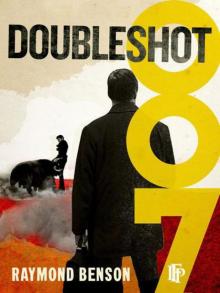 Doubleshot
Doubleshot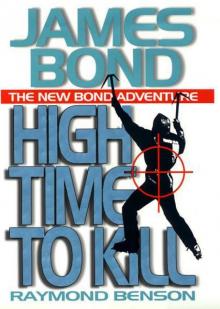 High Time To Kill rbb-3
High Time To Kill rbb-3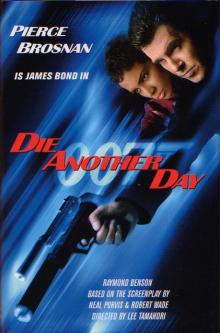 Bond Movies 07 - Die Another Day
Bond Movies 07 - Die Another Day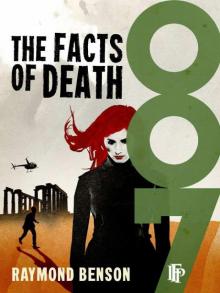 The Facts Of Death
The Facts Of Death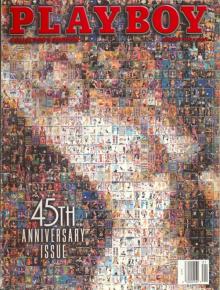 Midsummer Night's Doom
Midsummer Night's Doom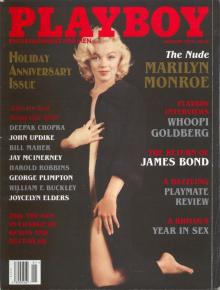 Blast from the Past
Blast from the Past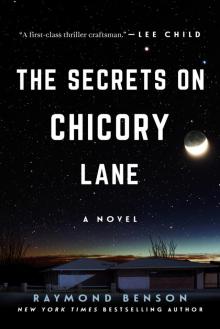 The Secrets on Chicory Lane
The Secrets on Chicory Lane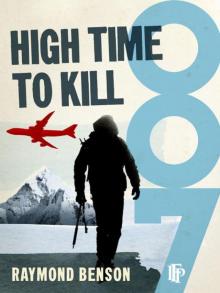 High Time To Kill
High Time To Kill The Black Stiletto: Black & White
The Black Stiletto: Black & White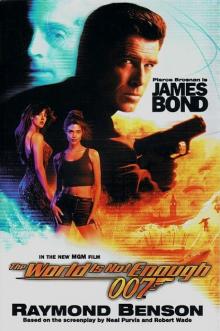 The World Is Not Enough jb-1
The World Is Not Enough jb-1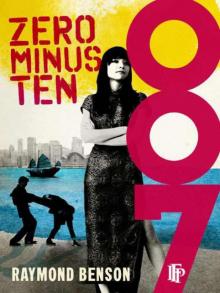 Zero Minus Ten rbb-1
Zero Minus Ten rbb-1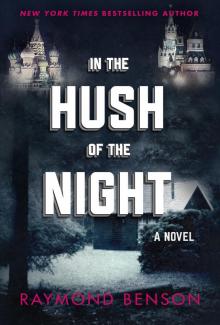 In the Hush of the Night
In the Hush of the Night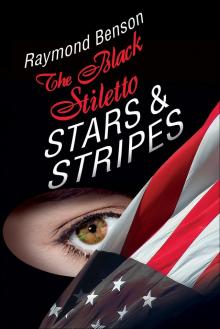 The Black Stiletto: Stars & Stripes
The Black Stiletto: Stars & Stripes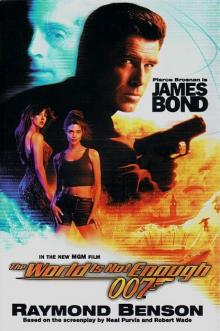 Bond Movies 06 - The World Is Not Enough
Bond Movies 06 - The World Is Not Enough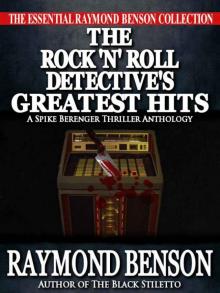 The Rock 'n Roll Detective's Greatest Hits - A Spike Berenger Anthology
The Rock 'n Roll Detective's Greatest Hits - A Spike Berenger Anthology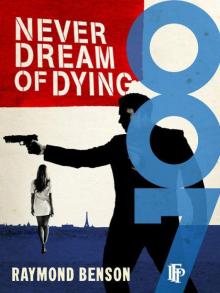 Never Dream Of Dying
Never Dream Of Dying